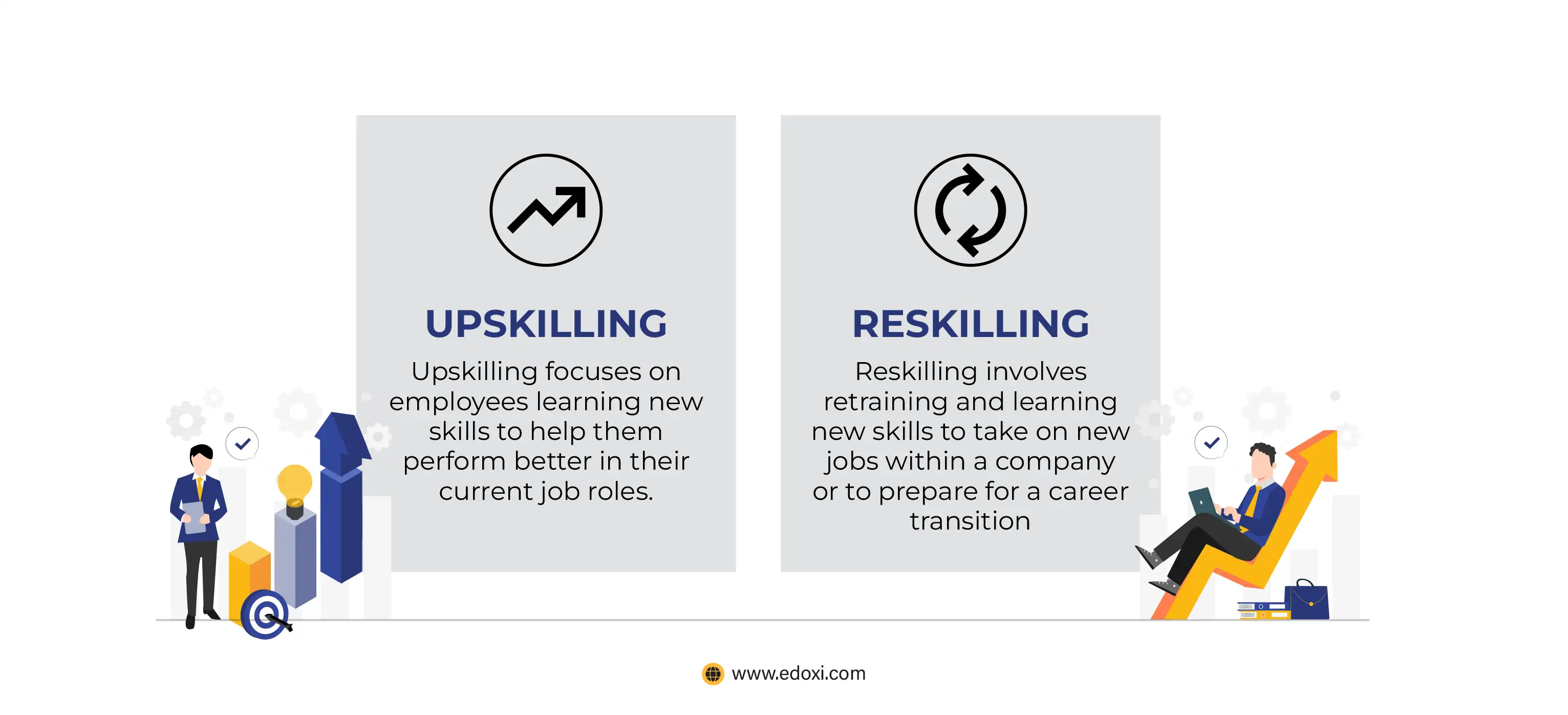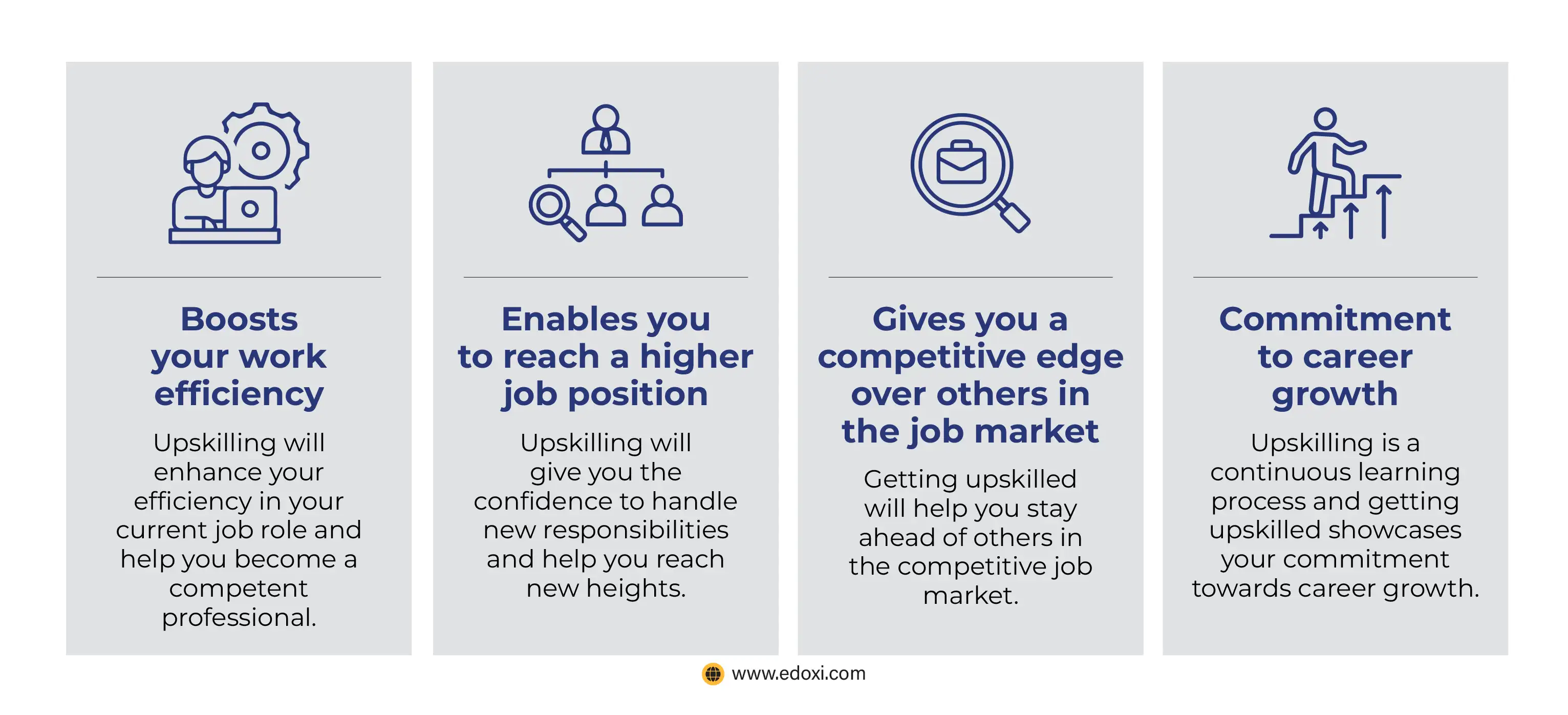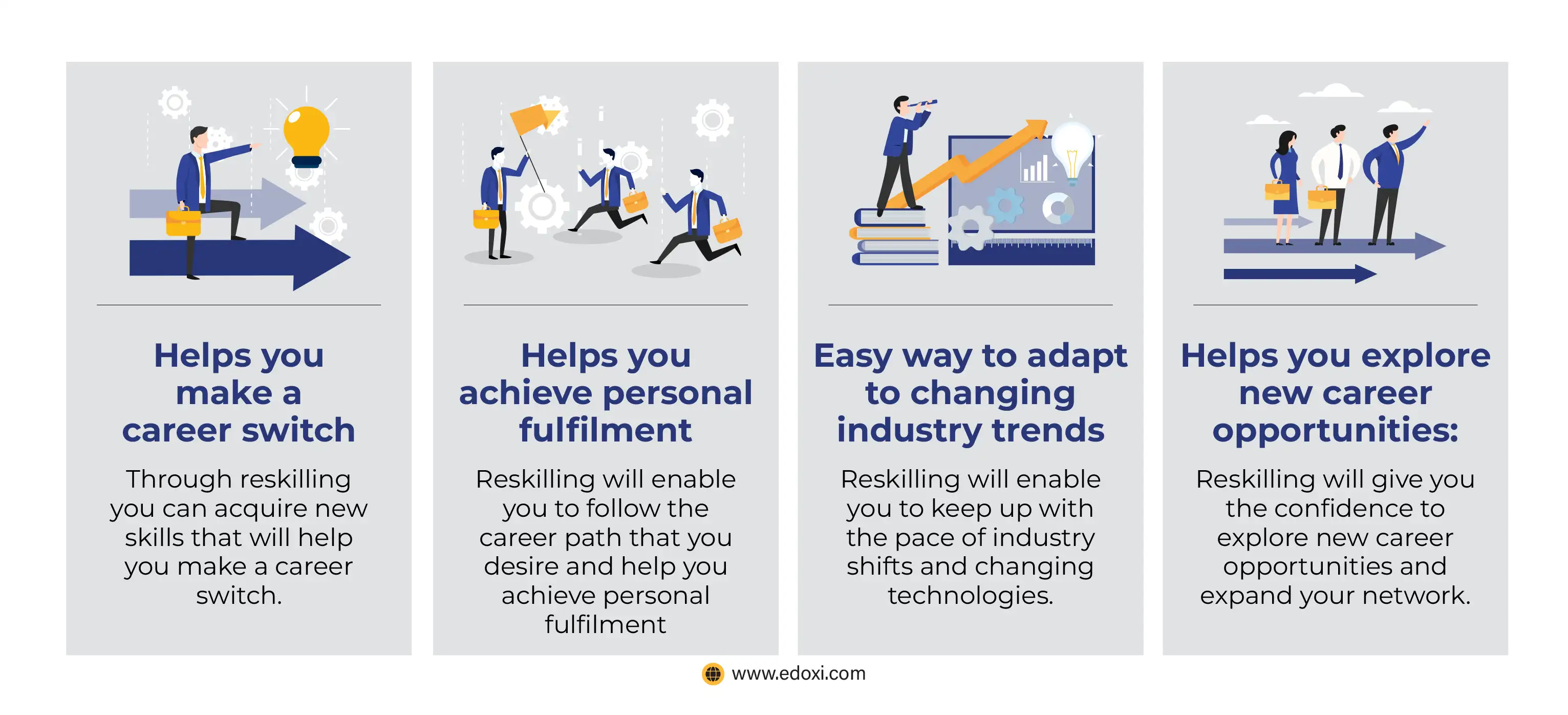 Julie Archer
Jun 07, 2024
Julie Archer
Jun 07, 2024

In today's rapidly evolving professional landscape, driven by technological advancements and shifting industry demands, continuous learning has become inevitable for staying relevant and competitive. With the imminent transformation of job roles and the emergence of new industry needs, complacency is a luxury businesses cannot afford. Fortunately, leaders have two potent talent development tools: upskilling and reskilling
“The future belongs to those who learn more skills through intensive persistence” - Robert Greene
This blog delves into the nuances between upskilling and reskilling, helping you discern the most suitable path for your career aspirations. It equips you with the necessary resources to thrive in today's job market and help you excel in the ever-changing digital landscape.

According to the World Economic Forum, 50% of the global population needs new skills to meet shifts in demand driven by new technologies, (a figure projected to rise by 90% by 2030). Upskilling refers to acquiring new skills that complement and enhance your existing skill set, akin to building upon a strong foundation. These new skills can directly relate to your current role or expand your capabilities in a way that benefits your overall career development. There are various corporate training programs that will help you upgrade your technical skills along with soft skills.

Reskilling, on the other hand, involves retraining and learning new skills to take on new jobs within a company or to prepare for a career transition. It entails acquiring entirely new skill sets, making it ideal for individuals seeking significant changes or facing job market disruptions in their current field.

Reskilling is distinct from upskilling, which involves consistently training or educating an employee to reduce skill gaps and enhance performance within their existing role. Here's a table to illustrate the key differences between upskilling and reskilling:
| Feature | Upskilling | Reskilling |
| Objective | Enhance existing skill set for career advancement | Transition to a completely new career path |
| Skill Sets Acquired | Builds upon and complements existing skills | Entirely new skill sets in a different domain |
| Career Impact | Increased performance and potential for growth | Career change and qualification for new jobs |
| Learning Intensity | Moderate; builds upon existing knowledge | Intensive; requires significant time and dedication |
| Duration | Shorter, typically continuous learning | Longer, comprehensive training |
| Resource Investment | Often company-sponsored or self-funded | May require external funding or support |
| Industry Alignment | Aligned with current industry trends | Tailored to specific industry demands |
| Job Stability | Enhances current job security | This may involve temporary unemployment during training |
| Employer Demand | In-demand skills within the current field | Addressing emerging skill gaps or industry shifts |
| Certification | Often recognized within the current industry | May require certification for entry into a new field |
By understanding these distinctions, you can determine whether upskilling or reskilling is the best approach to achieving your career goals.
Here’s how you can choose the right option!
Choosing between upskilling and reskilling depends on your specific career aspirations. Here's a self-assessment to guide your decision:
Take into account your organization's long-term objectives. If you anticipate potential impacts from technological advancements like AI and machine learning, strategize on leveraging reskilling initiatives to effectively prepare for these transformations.
The ever-changing job market demands continuous learning. Whether you choose to upskill and refine your current expertise or re-skill and embark on a new career adventure, this guide equips you with the tools and resources to thrive. Remember, the most important step is to take action. Start your upskilling or reskilling journey today and invest in your future success!

Chief Consultant Corporate Trainer
Julie Archer is a Corporate Training Professional with more than 15 years of experience in training and development. Hailing from Newcastle, United Kingdom, Ms. Archer established her authority in the field of corporate training and business skills development in the UAE and now with Edoxi Training Institute in Dubai. She has critical exposure in designing and delivering training programs for the top business organisations in Dubai. Her drive to transform employees and contribute to their company is the secret behind her excellence in this profession. To make a positive change in the lives of people is what she finds most fascinating about her job.
She enjoys the challenges that come with building a vibrant and efficient workforce. Her rich knowledge in the domain comes to the rescue when situations prove to be demanding. She commits much of her efforts to transforming education spaces into smart learning environments.